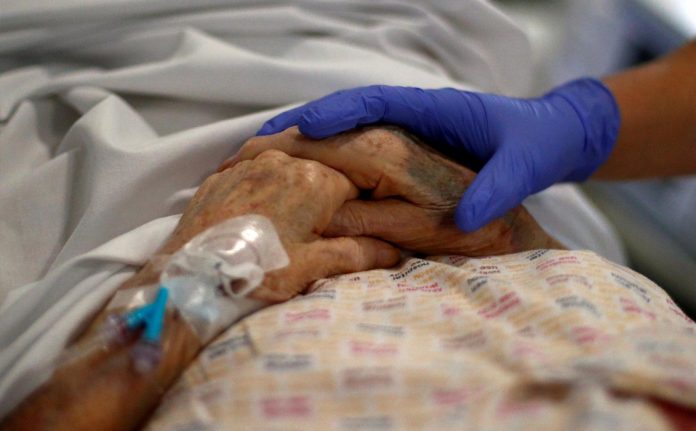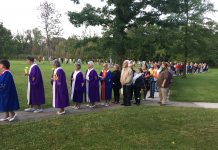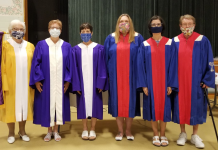
By Cindy Wooden
VATICAN CITY (CNS) — Praising those who help the sick and praying for those who are sick, Pope Francis called on Christians to practice what they preach, including by guaranteeing equal access to health care for all people.
“The current pandemic has exacerbated inequalities in our health care systems and exposed inefficiencies in the care of the sick,” the pope wrote in his message for the 2021 World Day of the Sick, which the Catholic Church marks Feb. 11, the feast of Our Lady of Lourdes.
The COVID-19 pandemic has made it obvious to everyone that “elderly, weak and vulnerable people are not always granted access to care,” at least not in an equitable way, he said. “This is the result of political decisions, resource management and a greater or lesser commitment on the part of those holding positions of responsibility.”
“Investing resources in the care and assistance of the sick is a priority linked to the fundamental principle that health is a primary common good,” Pope Francis wrote in his message, which was released by the Vatican Jan. 12.
The papal message, using Jesus’ denunciation of hypocrisy in Matthew 23:1-12, insisted that real faith leads to real care for all who suffer from illness, poverty or injustice.
“When our faith is reduced to empty words, unconcerned with the lives and needs of others, the creed we profess proves inconsistent with the life we lead,” the pope wrote. “The danger is real.”
When another person is suffering, he said, Jesus “asks us to stop and listen, to establish a direct and personal relationship with others, to feel empathy and compassion, and to let their suffering become our own as we seek to serve them.”
Being sick makes one realize his or her “own vulnerability and innate need of others,” the pope said. “It makes us feel all the more clearly that we are creatures dependent on God.”
“When we are ill,” he continued, “fear and even bewilderment can grip our minds and hearts; we find ourselves powerless, since our health does not depend on our abilities.”
For many people, the pope said, “sickness raises the question of life’s meaning,” something Christians must “bring before God in faith. In seeking a new and deeper direction in our lives, we may not find an immediate answer. Nor are our relatives and friends always able to help us in this demanding quest.”
Like Job in the Bible, people must stick with their prayers, crying out to God for help, he said.
In the end, God “confirms that Job’s suffering is not a punishment or a state of separation from God, much less as sign of God’s indifference,” he said. Job, “wounded and healed,” confesses his faith in the Lord.
Pope Francis praised the “silent multitude of men and women,” who, as the pandemic continues, do not look away, but help their patients or their neighbors.
“Such closeness is a precious balm that provides support and consolation to the sick in their suffering,” he said. “As Christians, we experience that closeness as a sign of the love of Jesus Christ, the Good Samaritan, who draws near with compassion to every man and woman wounded by sin.”
Jesus’ commandment to love one another also applies to a Christian’s relationship with a person who is sick, the pope said. “A society is all the more human to the degree that it cares effectively for its most frail and suffering members, in a spirit of fraternal love.”
“Let us strive to achieve this goal, so that no one will feel alone, excluded or abandoned,” he said, praying that “Mary, Mother of Mercy and Health of the Infirm,” would watch over the sick, health care workers and all those who help others.



































